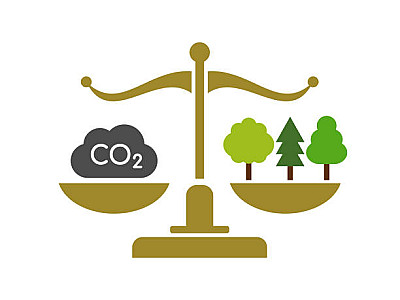Understanding the Opportunities of Insurance in Indonesia
An overview of the current trends within Indonesia's insurance industry.



As the world sets ambitious goals on greenhouse gas emissions, many global leaders are starting to increase pressure on companies to seriously start reducing their carbon footprint. For many, they still find it difficult to fully eliminate, or even lessen their carbon emissions as quickly as possible.
More countries have begun to enact necessary regulations to put carbon pricing at the center of their mitigation strategies. Despite this, there seems to be a lack of clarity on Indonesia’s government revolving to the implementation of guidelines and regulations to set up a market mechanism on carbon credit trading.
As part of our expert network in Indonesia, Mr. LM was able to share his take on the current situation of Indonesia’s carbon credit trading.
A year after Presidential Regulation Number 98 of 2021 concerning carbon economic values was issued, the Ministry of Environment passed a derivative regulation Number 21 of 2022 regarding procedures for implementing carbon economic values. Even so, in terms of seriously reducing the nation’s emissions, the government is still not strict enough with their implementations. Considering how reliant the nation is with its coal power plants and current global energy crisis, the government still prefers to do more adjustments while trying to encourage transitioning away from the coal industry.
Definitely those that are in the high carbon intensive sector. The top three would be energy, agriculture, and forestry.
As part of achieving Indonesia’s net-zero target, the government has been planning for quite a while to shut down coal power plants in the next 5 to 10 years. Additionally, since Indonesia’s State Electricity Company (PLN) have also planned to start transitioning to use of geothermal and biomass, this serves as further encouragement for the government to lessen the use of coal for the nation’s energy by enacting carbon regulations.
Based on Mr. LM’s professional opinion, it would be extremely difficult to fully implement carbon regulations now. When we consider the negative impacts of COVID-19 pandemic on Indonesia’s economy, a big portion of the State’s Budget (APBN) has been allocated for the purpose of reviving the nation’s economy during and post-pandemic. Hence, the remaining funds can be considered not enough to support widespread carbon projects or implementations of carbon regulations. Meanwhile, if Indonesia were to consider requesting help from neighboring countries, the current global condition is another challenge that we have to greatly consider.
So, it is not a matter of will, but a matter of when. Since Indonesia has made a global promise to 170 foreign countries in terms of emission goals, the nation’s financial institutions are being pressured and encouraged to help the players within this carbon issue to achieve Indonesia’s carbon target by 2030.
Banks will provide financing to promising companies or institutions, for instance, methane capture, or conservation projects. For local banks in Indonesia, many of them are still reluctant to fully dive into the carbon market. With most still questioning the profitability, since most carbon projects are deemed too risky considering the 5+ years payback period.
There are only a few banks who are financing methane capture projects at palm oil mills, and it’s not merely just about the green aspect of the project, but essentially these banks are providing transition financing. So, they don’t only finance the green facilities, but also the palm oil fields as a whole.
On the other hand, for carbon conservation projects, banks still view them as huge risks with too long of a payback period, since they would have to wait more than 10 years to grow the conservation land and start reaping profits.
Contact us to explore more about the current trends of the logistic industry and be connected with our expert network Indonesia.
Subscribe to our newsletter, and stay updated with the latest insights on various industries.
About Mr. LM:
Mr. L has 3 years of experience in Sustainable Finance specializing in Carbon Credit. His responsibilities include creating a carbon credit pricing framework and approach for Indonesia’s regional bank that aligns with the country’s law and regulation; manage and develop sustainability strategy within the bank as well as its sustainable finance program.
We will give you updates of our latest news
An overview of the current trends within Indonesia's insurance industry.

One of Askpert's advisors had the opportunity to share his insights about the expedition industry.

Ammonia is one of the new green energy technologies to curb emissions. Mr. DF, a specialist in the ammonia manufacturing sector, provided us with insights into the expansion of the ammonia industry in Indonesia.

Our advisor shares insights on how ecommerce enablers have been helping brands in Indonesia.
